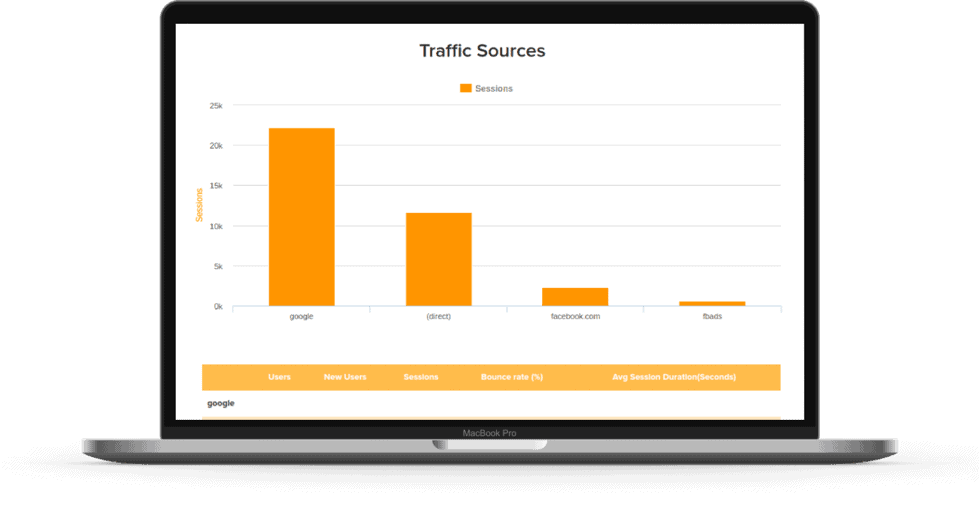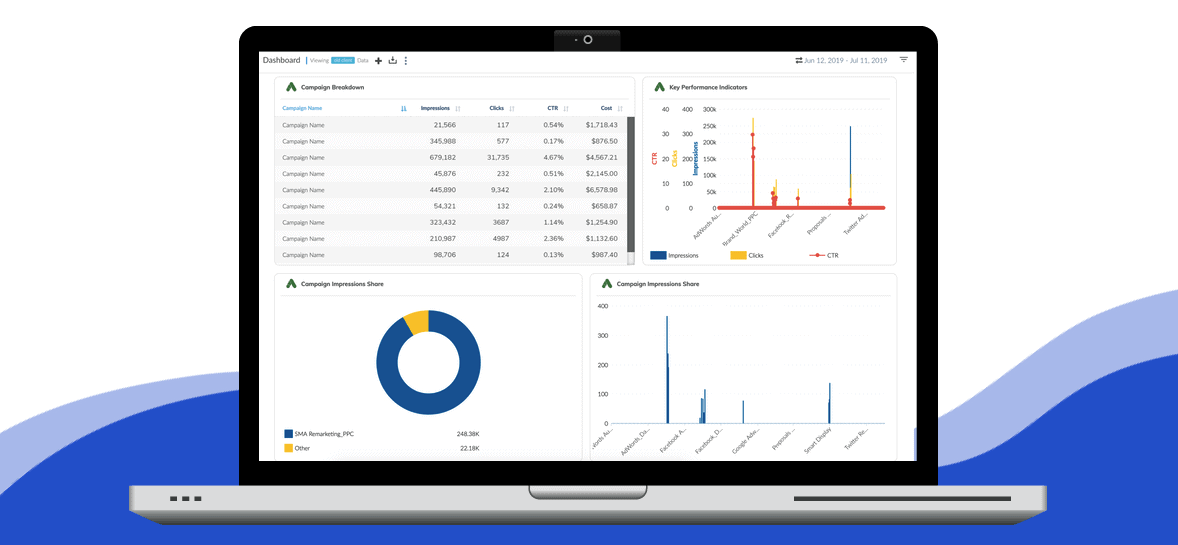If you are wondering why the ranking of your website is not well, the answer is straightforward – poor SEO. Website optimization means all the processes involved in programming, coding, and setting a web page according to Google’s rules that affect their better search positioning.

Optimizing your website should be a job entrusted to professionals. They usually work for specialized companies or digital agencies. You should be aware of the list of tasks they’re in charge of. Still, how do you know that the work they do will bring results to your business?
The best SEO agency is one that will provide intensive support, transparency, and regular information about their work, visible results, as well as a reasonable price. And all this should be accompanied by adequate and up-to-date reporting.
Types of SEO Analyses
In the business world, there is often one saying – if you can’t measure work (success), then you can’t improve it. It means that everything you do, you are doing for some reason. You want to know if you are going in the right direction, whether some things can be better or you have already made some improvements.
The same goes for SEO strategy. When applying it, you should do several types of analysis. First one is technical analysis, for checking the technical settings on the site. It looks at whether the site is working well, whether there are bugs, the period of loading pages, whether they are indexed, etc.
Next step is an analysis that should review the content structure on the website. It is called On-page analysis, and we use it to check whether page titles and meta description are unique, are there enough keywords, is the web page URL optimized, and so on.
The final step is off-page analysis; that is, researching the external links that lead to your website. In that case, you should know how many backlinks you have, what they are linked to, whether those URLs are active, and the authority of the websites leading to your web presence. Being connected with high-authority websites is of the utmost importance. All reports obtained after these analyzes will serve as a basis for setting a new or improving existing SEO strategy.
Common SEO Reports
If done correctly, SEO provides an outstanding return on investment (ROI), which is why most companies choose it as a basis of their online business. SEO activities produce easy-to-measure results that can provide a lot of data. Due to ease of reporting, it’s easy to track these actions.
Today, it is possible to follow almost every aspect of online business. The results achieved in the ranking, organic traffic, and conversion will quickly prove the cost-effectiveness of SEO strategy you have implemented. Below are described several common types of SEO reports for various success parameters of proper website optimization.
Organic Search Traffic Report

The number of people who search for your site directly is quite small compared to those who will come to you indirectly (by typing keywords or through links). Based on the information generated by organic traffic records, you will be able to determine what your top search landing pages are, what keywords benefit the most, which search engines send you the most traffic, and the like.
Following organic keyword is still one of the essential parts of SEO. Quality, steady traffic from search engines is still a significant part of online success. The report shows traffic trends over a while and can be combined with conversion data. If there is no traffic for the terms relevant to your business, it is time to work on your SEO strategy.
Slow Loading Page Time Report
Good SEO is not only about the content but also complete user experience. Slow-loading pages, in the age of the high-speed Internet and advanced technologies, are a huge ‘no-no.’ Website optimization for speed and performance is an essential item when it comes to an excellent SEO strategy.
When it comes to slow pages, the user experience tells us this factor is essential in the ranking. The Slow Page SEO report aims to help you detect pages that, with their loading speed, can affect conversion and results. After receiving this record, you should optimize the speed and performance of the ‘slow’ pages found. Once you’ve done, do the new check to see if some of the conversions have changed and whether those pages bring any benefits after optimization.
Behavioral Reporting
This type of SEO record provides insight into the relationship between new visitors and those who return. These frequency and speed of visits are beneficial to understand who gets back to the site to buy, sign up, or read something.
Business owners should care about the traffic generated by new visitors. That’s an essential part of on-site growth. Returning visitors are the ones who drive conversions. We need to nurture them and invest in the channels that bring them to the site.
Generating SEO Reports
 To be able to measure your results, you need to know how to use specific tools. Or you can engage someone to do it for you and report back to you. Using these digital tools, we can extract the required details about our SEO activities. There are many of these apps, both free and paid. Both do a good job; the question is, what do you want to measure?
To be able to measure your results, you need to know how to use specific tools. Or you can engage someone to do it for you and report back to you. Using these digital tools, we can extract the required details about our SEO activities. There are many of these apps, both free and paid. Both do a good job; the question is, what do you want to measure?
Logically, free tools do not offer many options. They may serve you for generating some basic reports, such as ranking a specific keyword or measuring organic traffic to your website. For more advanced options, you must be ready to pay for them.
Back to you
Being invisible in the online world is like your company doesn’t even exist. Unless your website is ranked on online search engines, the success of your business will be pretty limited. So you have to devote yourself to developing a good and efficient digital marketing strategy. No one says that you’ll fail if you don’t have the best SEO in the world, but the risk is higher when you neglect the online business and everything that comes with it.
You should always continue learning. Check out these 16 timeless lessons from studying Russell Brunson.
